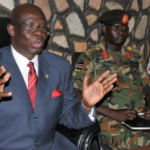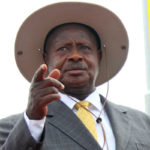A group of black South African businessmen will make a one-week visit to Uganda next month to search for market and investments opportunities, courtesy of the South African Department of Trade and Industry.
Dubbed the ‘Outward trade Mission’, the group that will be in the country from September 18-23 will comprise export-ready black industrialists operating in the economic infrastructure, agro-processing, chemicals, pharmaceuticals, plastics, electronics, as well as textiles, footwear and leather sectors.
Dr Rob Davies, South African Minister of Trade and Industry, says the mission is part of the implementation of the Black Industrialists Programme (BIP), one of his government’s industrialisation initiatives to expand the country’s industrial base and inject new entrepreneurial dynamism in the economy.
“The Black Industrialists Programme is specifically dedicated to supporting the growth and building the global competitiveness of majority black-owned and managed businesses in the manufacturing sector,” Dr Davies says.
He adds: “the intention of the mission is to contribute towards shifting the demographic composition of South Africa’s industrial sector by engaging with and nurturing emerging Black Industrialists to tap into a reservoir of potential jobs, revenue, taxes and innovation,” says Davies.
The trade mission is expected to open a market for the Black Industrialists for trade and investment in Uganda and potential markets in other parts of the East African region.
According to Davies, Uganda has been selected due to its geo-political position within the East African region, as well as its economic size and importance for trade with South Africa and as a destination for South African investments.
The minister says the mission to Uganda will be the third that South Africa has arranged for the black industrialists, after missions to Nigeria in September last year, and Namibia in June this year.
Fifty projects with an estimated grant value of R1.3 billion have been supported through the Black Industrialists Incentive Scheme since the inception of the programme in 2015. This is matched by approximately R3.6 billion of private sector investment across all sectors with 8 000 jobs supported.








